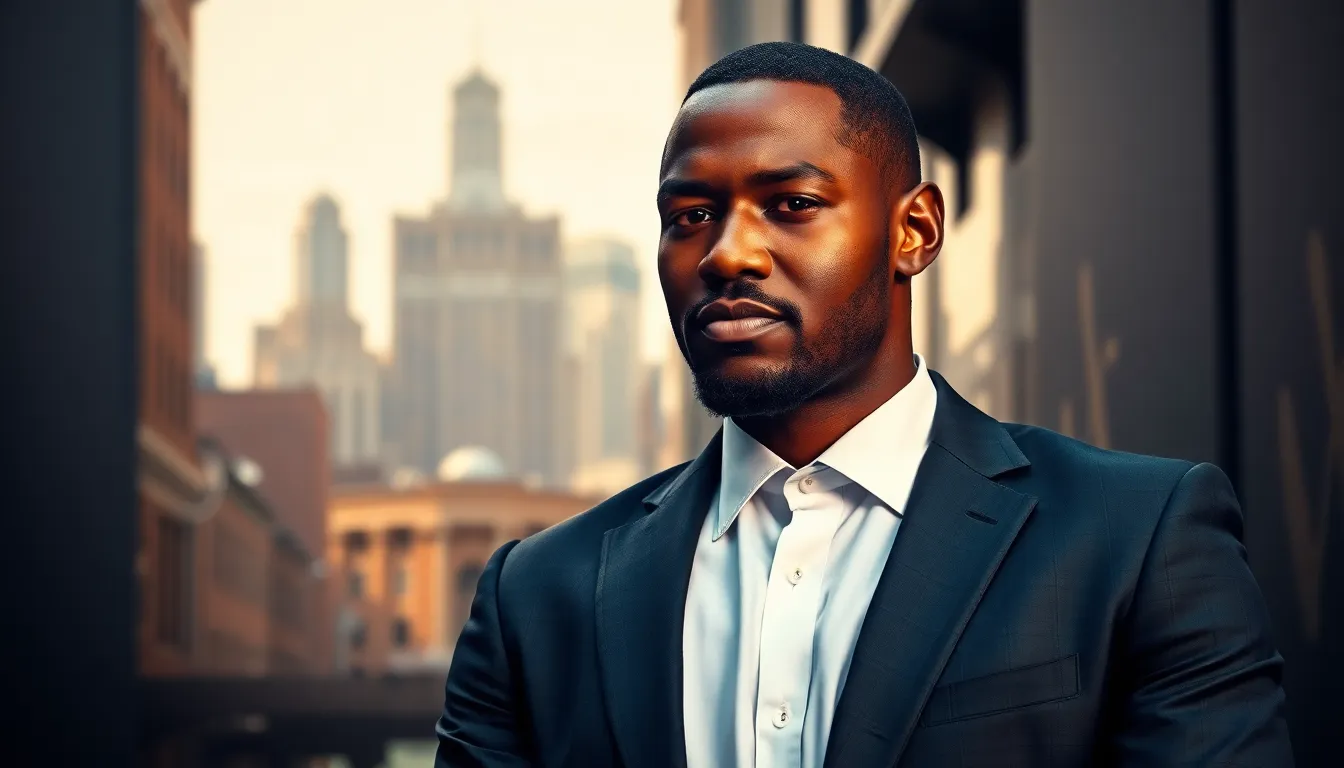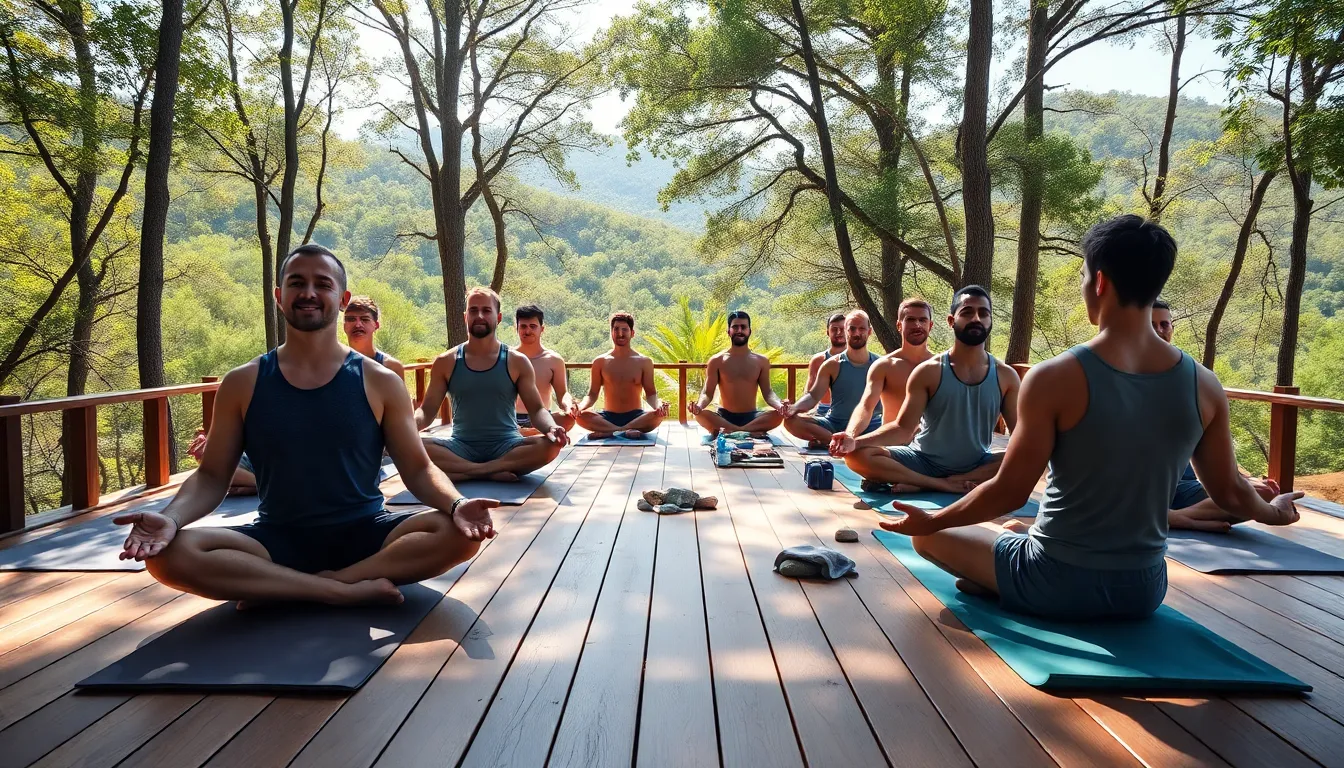Table of Contents
ToggleIn a world that often boxes people into neat little categories, the African American male stands as both a powerful figure and an enigma. These individuals have shaped history, enriched culture, and faced formidable challenges. But let’s not kid ourselves: life as an African American male isn’t just a hashtag or a statistic. So, grab your favorite snack, buckle up, and let’s investigate into the multi-faceted journey of African American males, from the threads of their historical roots to their vibrant cultural impact and the challenges they face today. Spoiler alert: this is not just another dry history lesson. It’s about real lives, real struggles, and real achievements.
Historical Context of African American Males

Understanding the historical context of African American males starts with the brutal realities of slavery, where their identities were stripped, and they were subjected to unimaginable hardships. The abolition of slavery did not erase these scars: instead, it opened a new chapter of struggle. For instance, post-Civil War America saw the rise of Jim Crow laws, which institutionalized racial segregation. The resilience of African American males shined through the Harlem Renaissance with figures like Langston Hughes and Duke Ellington, who challenged the status quo while celebrating their heritage. So, the legacy of African American males is not merely one of suffering, but of resistance and triumph against overwhelming odds.
Cultural Contributions of African American Males
From jazz to hip-hop, African American males have left an indelible mark on global culture. Music, often a lifeline, became a vehicle for expression and societal critique. Icons like Miles Davis and Tupac Shakur transcended music genres, turning their melodies and lyrics into powerful narratives that resonate with millions. Literature follows suit, with authors like James Baldwin and Ta-Nehisi Coates examining the African American male experience through compelling prose. Beyond the arts, African American males have significantly influenced sports and politics, exemplified by figures such as Muhammad Ali and Barack Obama. Their contributions remind society that African American males are not just part of history: they are catalysts of cultural evolution.
Challenges Facing African American Males Today
Even though their rich contributions, African American males still grapple with significant challenges. Statistically, they face higher rates of incarceration and unemployment compared to their peers. The impact of systemic racism continues to permeate various aspects of life, from education to healthcare. Socioeconomic disparities serve as continuous barriers, often restricting access to opportunities that could pave the road to success. Mental health, often stigmatized, further complicates their situations, as pressures and expectations pile on. Understanding these challenges is crucial: only then can society work towards dismantling the structures that uphold them.
The Role of Education in the Lives of African American Males
Education plays a pivotal role in the lives of African American males, cutting as deep as the roots of systemic inequalities. Historically, access to quality education has been a privilege rather than a right. Today, African American males often systemically face underfunded schools and unconscious biases in educational settings. But, tools for change exist. Programs aimed at mentorship and community support have emerged, striving to uplift African American males academically and beyond. The importance of education cannot be understated, not just as a path to career advancement, but as a means of empowerment and self-discovery.
Representation in Media and Popular Culture
The representation of African American males in media and popular culture remains a double-edged sword. While there have been strides towards more nuanced portrayals in film and television, stereotypes still persist. Movies often depict African American males in roles centered around crime or violence, perpetuating harmful narratives. On the flip side, figures like Chadwick Boseman and the success of shows like “Black Panther” have brought forth complex characters that celebrate African American identity. Media representation matters: it shapes perceptions, influences opportunities, and can either reinforce stereotypes or foster understanding.
Community Resilience and Activism
Community resilience is a testament to the enduring spirit of African American males. Grassroots movements, often spearheaded by young activists, seek to address systemic issues head-on. The Black Lives Matter movement is a prime example of how African American males mobilize to confront injustice and advocate for change. From local initiatives addressing educational disparities to national conversations surrounding police reform, community activism showcases their resilience. These movements are not just about protest: they are about hope and the desire for a future where African American males can thrive.
Future Perspectives for African American Males
The future for African American males is imbued with both challenges and opportunities. As society becomes increasingly aware of racial injustices, the dialogue surrounding equity is evolving. Innovations in technology and the rise of entrepreneurship present avenues for African American males to redefine their narratives. Education and mentorship remains crucial: equipping future generations with the tools necessary to succeed is paramount. Through resilient communities and sustained activism, there is a growing push toward creating a more equitable landscape for all.





